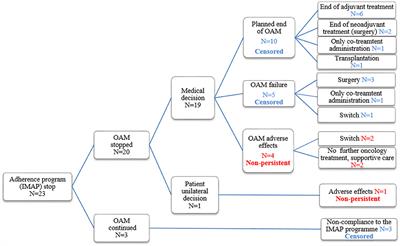METHODS
Published on 26 Apr 2019
Beyond Adherence Thresholds: A Simulation Study of the Optimal Classification of Longitudinal Adherence Trajectories From Medication Refill Histories

doi 10.3389/fphar.2019.00383
- 3,329 views
- 13 citations
12k
Total downloads
59k
Total views and downloads
You will be redirected to our submission process.
METHODS
Published on 26 Apr 2019

ORIGINAL RESEARCH
Published on 26 Feb 2019

PERSPECTIVE
Published on 19 Feb 2019

ORIGINAL RESEARCH
Published on 29 Jan 2019

PERSPECTIVE
Published on 09 Jan 2019

SYSTEMATIC REVIEW
Published on 24 Dec 2018

ORIGINAL RESEARCH
Published on 03 Dec 2018

SYSTEMATIC REVIEW
Published on 20 Nov 2018

